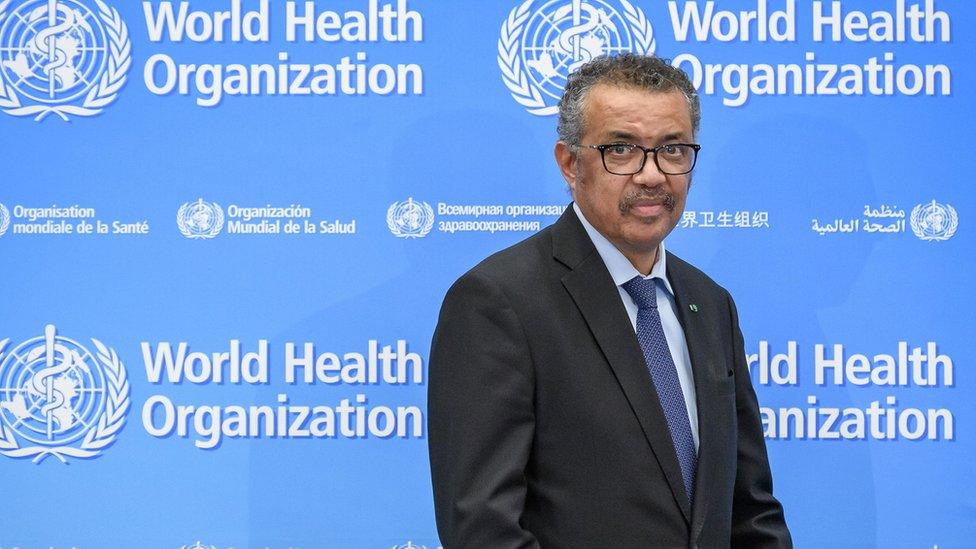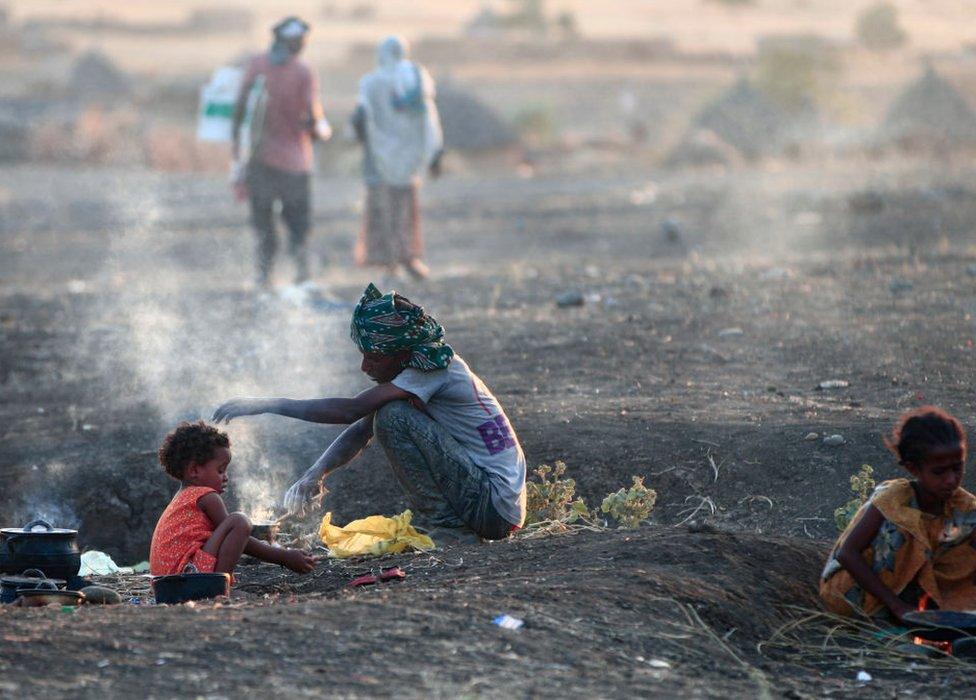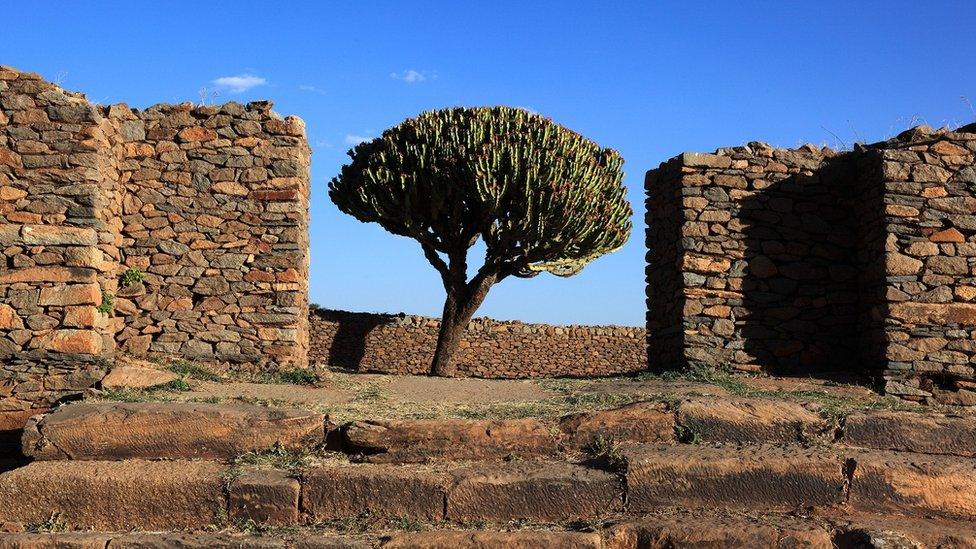WHO boss Dr Tedros denies supporting Tigray leaders
- Published

Dr Tedros has not yet commented on the accusation
The head of the World Health Organization (WHO) Dr Tedros Adhanom Ghebreyesus has denied accusations made by Ethiopia's army chief that he helped to procure weapons for the Tigray People's Liberation Front (TPLF).
The TPLF is fighting federal troops.
Dr Tedros is Tigrayan and was health minister in a previous Ethiopian government, which was led by the TPLF.
"There have been reports suggesting I am taking sides in this situation. This is not true," he wrote on Twitter.
"I want to say that I am on only one side and that is the side of peace," he added.
His comments come after Gen Berhanu Jula said in a press conference that Dr Tedros had "left no stone unturned" to support the TPLF and help get them weapons. He did not provide any evidence to support his allegations.
Hundreds have died in the conflict in Tigray since the beginning of November.
"My heart breaks for my home, Ethiopia, and I call on all parties to work for peace and to ensure the safety of civilians and access for health and humanitarian assistance," Dr Tedros tweeted.
Allow X content?
This article contains content provided by X. We ask for your permission before anything is loaded, as they may be using cookies and other technologies. You may want to read X’s cookie policy, external and privacy policy, external before accepting. To view this content choose ‘accept and continue’.

Earlier, Gen Berhanu said: "We don't expect him to stand on the side of Ethiopians and condemn these people. He has been doing everything to support them, he has campaigned for neighbouring countries to condemn the war," said Gen Berhanu.
"He has worked for them to get weapons."
After being voted in as the head of the WHO in 2017, Dr Tedros became well known at the beginning of the coronavirus pandemic and is now arguably the highest-profile Tigrayan abroad.
Meanwhile, US President-elect Joe Biden's foreign policy aide has appealed for both sides to end the fighting.
"Deeply concerned about the humanitarian crisis in Ethiopia, reports of targeted ethnic violence, and the risk to regional peace and security," Antony Blinken tweeted, external.
The UN's refugee agency warns that a full-scale humanitarian crisis is unfolding.
More than 30,000 people have crossed the border from Ethiopia into Sudan.

Ethiopian refugees are finding ways to survive across the border in Sudan
Thousands of civilians are continuing to flee across the border, the UN Refugee Agency's representative for Sudan, Axel Bisschop told the BBC's Newsday programme.
"I spoke to a banker, some teachers, health workers, and they all say that it was too dangerous to be there... and they left by foot," he said.
What's the conflict about?
The TPLF dominated Ethiopia's military and politics for decades before Abiy Ahmed became prime minister in 2018.
He pushed through major reforms which some say sidelined the TPLF.
The feud escalated in September when Tigray held a regional election, defying a nationwide ban on all polls imposed because of the coronavirus pandemic.
Mr Abiy called the vote illegal.
Then fighting broke out on 4 November after Ethiopia's central government accused the TPLF of attacking a military base to steal weapons.
The TPLF has denied the attack.

Five things about Tigray:
1. The Kingdom of Aksum was centred in the region. Described as one of the greatest civilisations of the ancient world, it was once the most powerful state between the Roman and Persian empires.

Aksum is believed to have been the home of the biblical Queen of Sheba
2. The ruins of the city of Aksum are a UN World Heritage Site. The site, dating from between the 1st and 13th Century AD, features obelisks, castles, royal tombs and a church which is believed by some to house the Ark of the Covenant.
3. Most people in Tigray are Ethiopian Orthodox Christians. The region's Christian roots stretch back 1,600 years.
Is this the home of the Ark of the Covenant?
4. The region's main language is Tigrinya, a Semitic dialect with at least seven million speakers worldwide.
5. Sesame is a major cash crop, exported to the US, China and other countries.